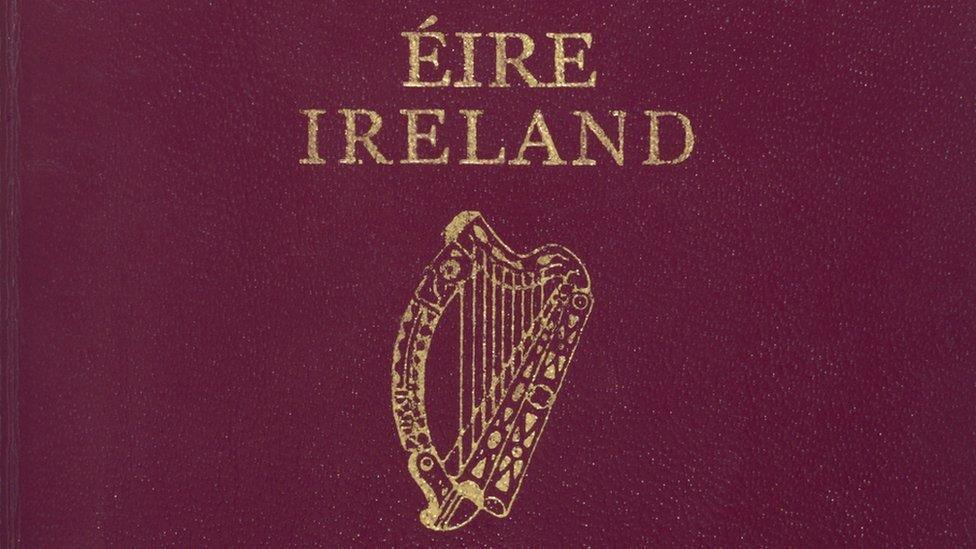EU referendum: Theresa Villiers says parliament sovereign
- Published
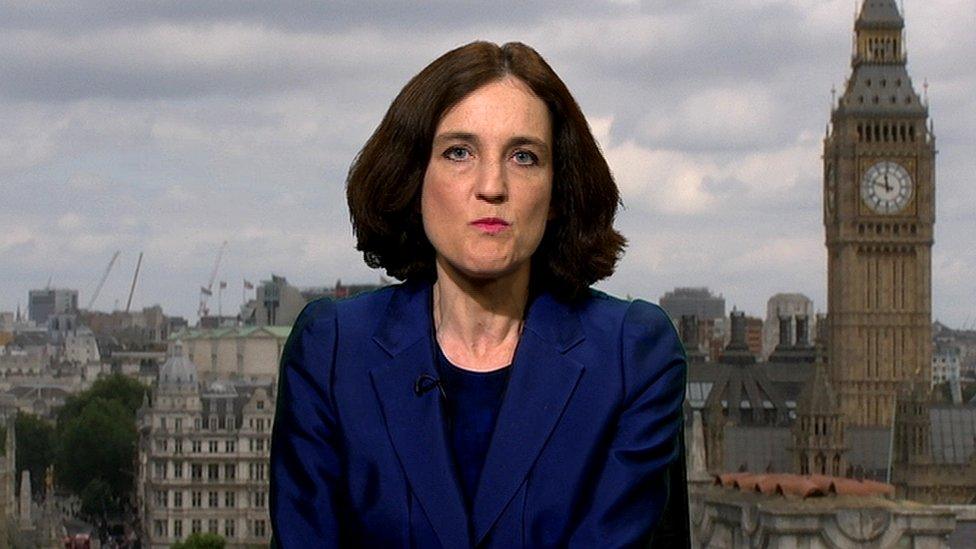
Theresa Villiers said the decision to repeal the 1972 Europeam Communities Act could only be made by the UK parliament
NI Secretary Theresa Villiers has dismissed the Scottish first minister's suggestion that the Scottish Parliament could effectively veto the UK's exit from the European Union.
Nichola Sturgeon said she believed Holyrood would have to give legislative consent to remove the UK from the EU.
She told the BBC she would "of course" ask MSPs to refuse such consent.
However, Ms Villiers told BBC NI's Sunday Politics that the British parliament was sovereign.
"In the weeks and months ahead we will be working with both the Scottish government and the Northern Ireland Executive on all these matters," Ms Villiers said.
"But ultimately it is parliament's decision whether we repeal the 1972 European Communities Act or whether we don't."
Meanwhile, Deputy First Minister Martin McGuinness has said he has requested an urgent meeting with the taoiseach to discuss the EU referendum result.
Mr McGuinness said Enda Kenny needed to defend the wishes of the majority of people of Northern Ireland who voted to remain in the EU.
Northern Ireland voted to remain in the EU by 56% to 44% in Thursday's referendum.
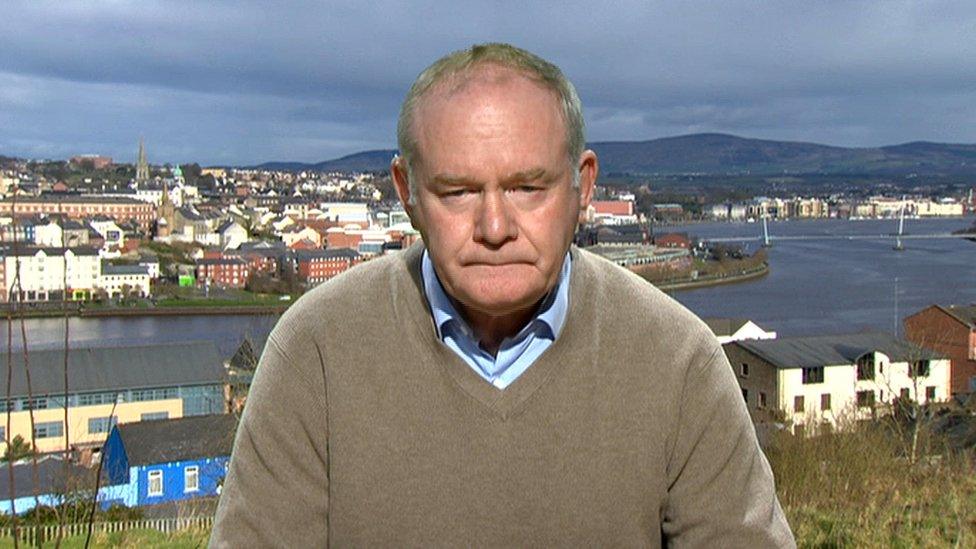
Martin McGuinness said Irish Prime Minister Enda Kenny should focus on those people in Northern Ireland who want to remain in the EU
However, the UK as a whole voted to leave the EU.
Mr McGuinness said the taoiseach's focus should be on the democratically expressed wishes of those people.
"I think in the immediate future the focus needs to be on the whole issue of how we can maintain our relationship with Europe which has been so beneficial to us over the course of the last number of decades," he said.
"There needs to be special arrangements which take account of the democratically expressed wishes of the people of the north of Ireland and Scotland."
The Irish parliament (Dail) is to be recalled on Monday to discuss the impact of Brexit on the Republic of Ireland.
'Angry audiences'
Ulster Unionist leader Mike Nesbitt said there were two audiences that particularly needed to be listened to in Northern Ireland.
"Young people, because a lot of them are very angry at this result," he said.
"Also nationalists. There are quite a number of nationalists who over recent years have been relaxed about their aspiration for a united Ireland and have seen it as an aspiration, rather than something they want to act to make a reality, and they are very angry."
Economy Minister Simon Hamilton said Brexit negotiations would have to take account of the particular circumstances in Northern Ireland.
"Certainly we as an executive should be going into those negotiations making it very clear to the new prime minister and the government in London and through them to the European Union, that there are particular circumstances in Northern Ireland," he said.
"We need to recognise the system of government that we have, aspects of our economy and elements of our economy that have different needs than perhaps England or Scotland or Wales."
SDLP leader Colum Eastwood said he believed the Northern Ireland Assembly and Scottish parliament could reject a Brexit
"We believe that the Northern Ireland Assembly, the Scottish parliament have the opportunity to say no," he said.
"We will do everything in our power to stop us leaving the European Union."
However, Naomi Long of the Alliance Party said ultimately there was nothing the regional parliaments could do.
"We would have the opportunity to make decisions over specific EU rules and laws that actually apply in Northern Ireland," she said
"However, parliament remains with primacy , it can take back power from Holyrood, it can take back power from the assembly, so let's not kid ourselves."
- Published25 June 2016
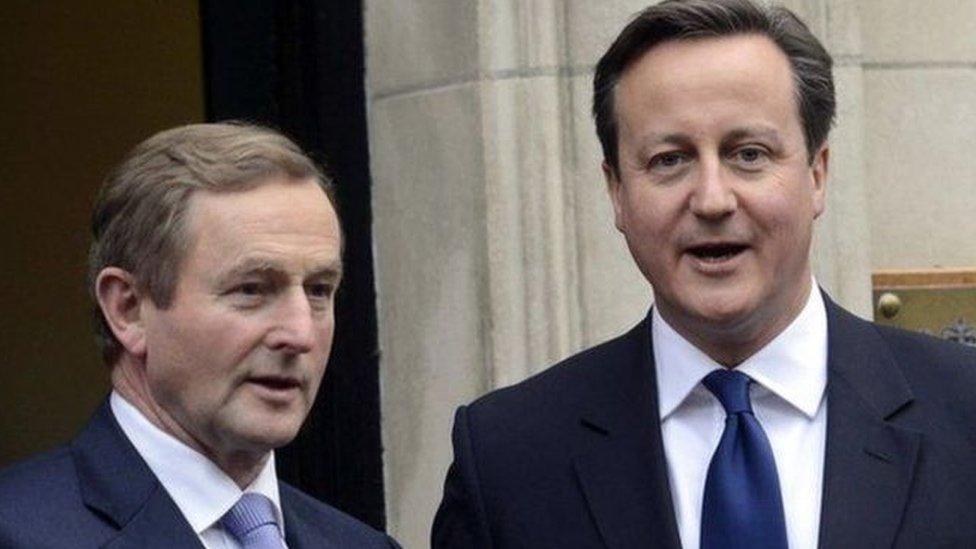
- Published24 June 2016
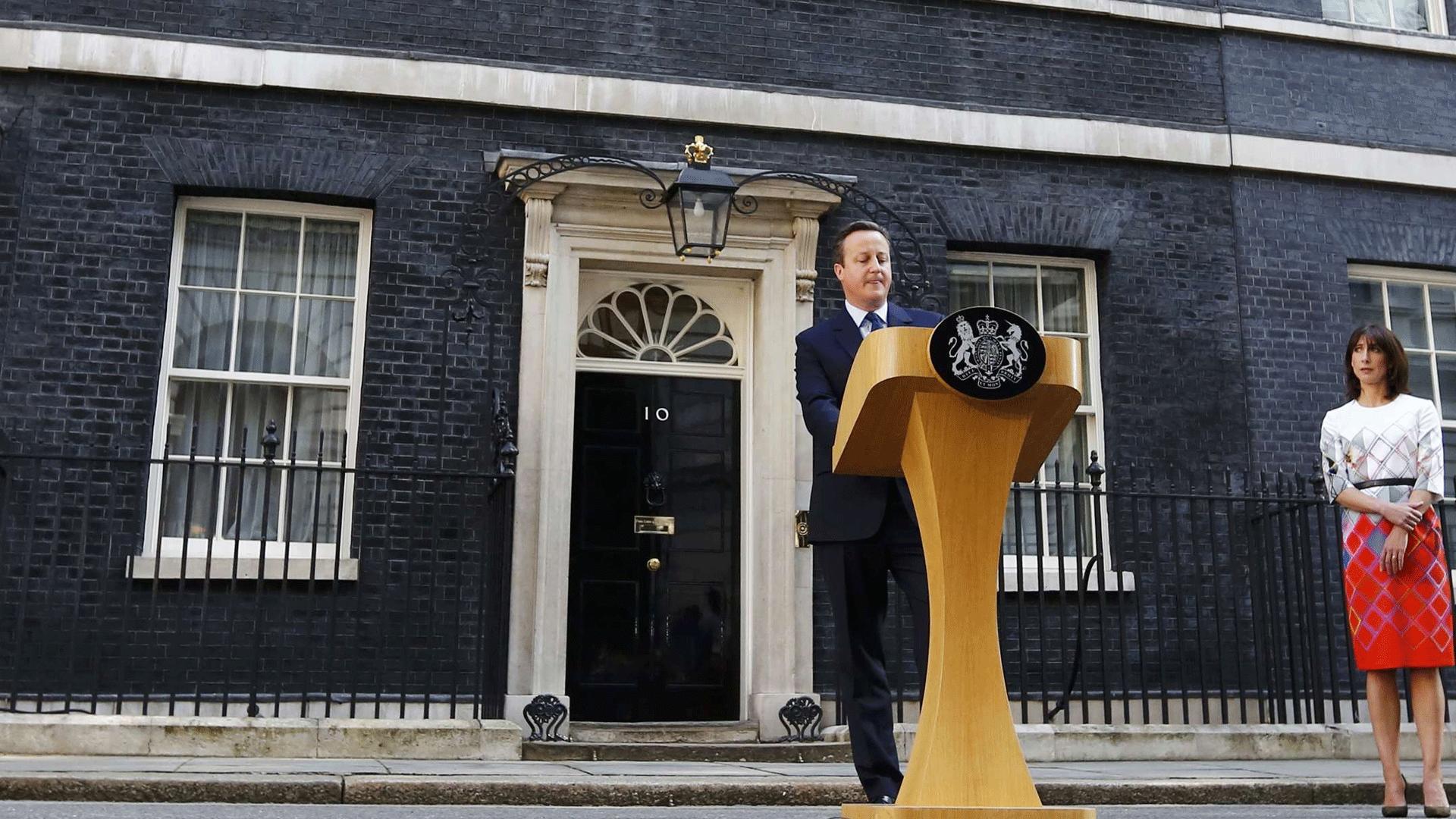
- Published24 June 2016
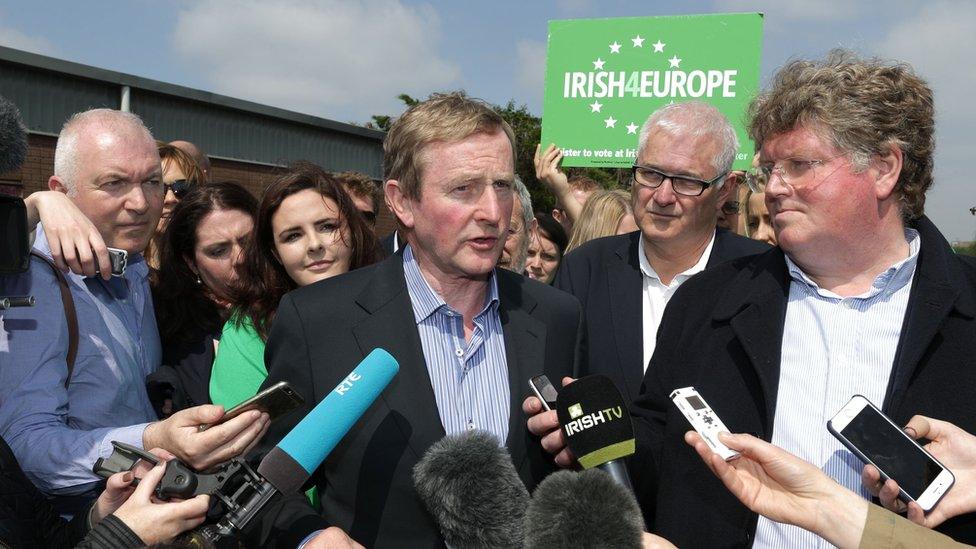
- Published24 June 2016
